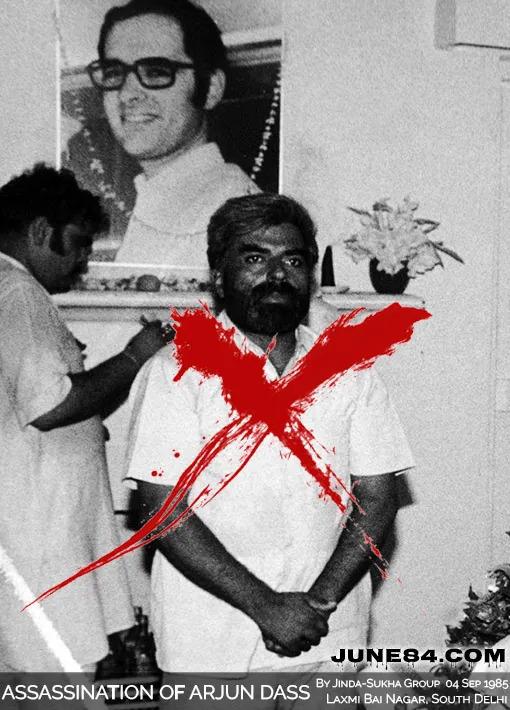Untold Powerful Story of Arjan Dass Assassination

Indian history has been marked by political assassinations, and the death of Arjan Dass stands as one of the most dramatic. Known as the Arjun Das assassination, this killing was more than just a violent act — it was the outcome of anger, unresolved grievances, and the failures of justice following the anti-Sikh riots of 1984.
By examining the assassination of Arjan Dass, we gain insight into how politics, communal tensions, and unhealed wounds shaped a tragic chapter in the nation’s story.
Who Exactly Was Arjan Dass?
Arjan Dass was a Congress politician based in Delhi during the turbulent 1980s. Though he held a respected role within the party, his career became overshadowed by allegations linking him to the anti-Sikh riots that followed Indira Gandhi’s assassination in 1984.
For many survivors, his name symbolized injustice and political protection. While he was never punished in a court of law, the accusations remained strong enough to define how history remembers him.
Why the Arjun Das Assassination Happened
The anti-Sikh riots devastated the community, leaving thousands dead and countless families displaced. The lack of accountability for those accused of orchestrating or allowing the violence created widespread anger.
In this climate, militant groups emerged, determined to take justice into their own hands. Leaders like Arjan Dass, accused by the community, became their prime targets. The Arjun Das assassination was born out of this atmosphere of frustration and vengeance.
The Killing of Arjan Dass
In 1985, Sikh militants executed a planned attack on Arjan Dass in Delhi, ending his life in public view. For the attackers, it was not random but a symbolic act — framed as punishment for his alleged role in the riots.
The assassination shook Delhi, reopening wounds from 1984 and underlining the dangerous breakdown in trust between Sikh communities and the Indian state.
Public and Political Reactions
The killing of Arjan Dass drew fierce condemnation from political leaders, who branded it terrorism. The Congress Party emphasized it as proof that militancy threatened India’s stability.
But among sections of the Sikh community, the reaction was very different. For some, the assassination was seen as revenge against an unjust system that had failed them. This split in opinion highlighted the deep divisions left by the riots.
Aftermath of the Arjun Das Assassination
The consequences of the killing were significant:
-
Tighter Protection for Politicians: Leaders accused in 1984 were placed under heavy security.
-
Emboldened Militants: The assassination gave confidence to groups seeking to strike at political figures.
-
Justice Questioned: The attack once again sparked outrage over why no accountability had been delivered for the riots.
-
Political Impact: Congress used the death to frame Sikh militancy as a national security threat.
Historical Memory of Arjan Dass
Today, Arjan Dass is remembered not for his political work but for his assassination. The Arjun Das assassination is often discussed in the context of post-1984 India and the Khalistan movement.
For some, he remains a casualty of militant violence. For others, his killing symbolizes the anger of a community denied justice. Either way, his story is permanently tied to one of the darkest periods in India’s recent history.
Lessons from the Assassination
The death of Arjan Dass teaches powerful lessons:
-
When justice is denied, communities may resort to violent means.
-
Political impunity can create resentment and unrest.
-
Revenge killings perpetuate cycles of bloodshed rather than healing.
-
True reconciliation is only possible through accountability and dialogue.
The Legacy of the Arjun Das Assassination
The assassination remains a reminder of what happens when governments fail to provide justice. It has become a case study of how communal wounds, if ignored, can spiral into violence.
Some continue to see the Arjun Das assassination as an act of terror, while others consider it retribution. Regardless of perspective, it reflects the broader struggle for justice in post-1984 India.
Conclusion
The story of Arjan Dass and the Arjun Das assassination reflects the dangers of injustice and the costs of communal division. His death symbolizes not only one man’s fate but the deep unrest of an entire community.
To remember Arjan Dass today is to reflect on the failures of the past. It is also to acknowledge that peace cannot exist without truth and accountability. Platforms like june84.com/ keep such stories alive, ensuring that future generations understand the lessons of those turbulent times.
By studying this assassination, society can work toward justice and reconciliation, preventing such violent cycles from repeating themselves.
- Art
- Causes
- Crafts
- Dance
- Drinks
- Film
- Fitness
- Food
- Spiele
- Gardening
- Health
- Startseite
- Literature
- Music
- Networking
- Andere
- Party
- Religion
- Shopping
- Sports
- Theater
- Wellness


